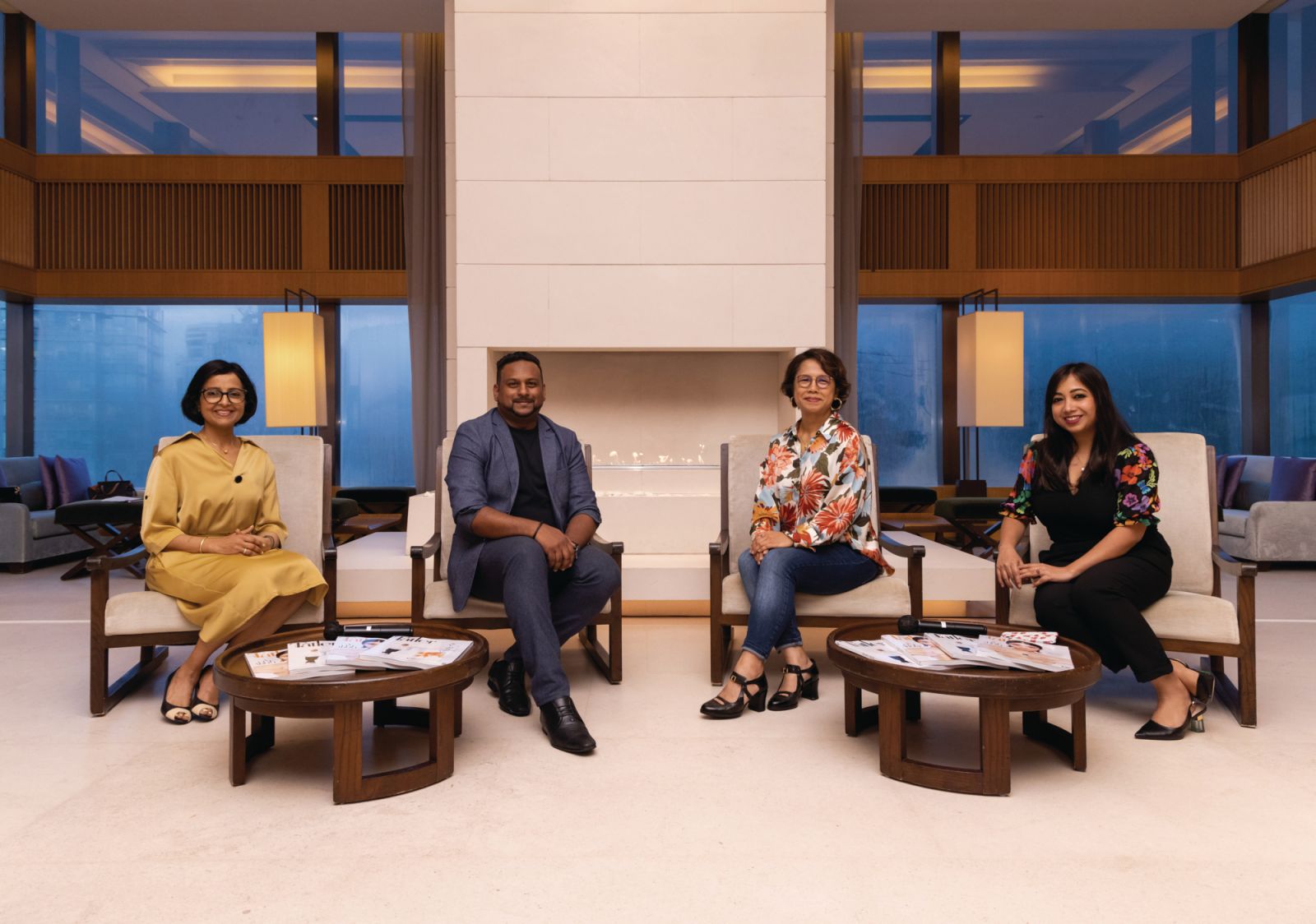On May 17, Tatler and the Upper House hosted the latest edition of House Stories, a monthly panel series at the hotel’s Sky Lounge
When? May 17, 2023
Where? The Sky Lounge at The Upper House
Who? Theresa Cunanan, Jeffrey Andrews and Niru Vishwanath
Here’s what you missed: On May 17, Tatler sat down with three leaders from the ethnic minority community in Hong Kong who have overcome hurdles, shattered glass ceilings, and are inspiring others.
The panel was part of Tatler’s monthly House Stories series at The Upper House’s Sky Lounge. At the event, 40 guests leaned in to listen to the courageous stories of Theresa Cunanan, senior lecturer at the College of International Education at Hong Kong Baptist University; Jeffrey Andrews, manager at Christian Action, Centre for Refugees; and Niru Vishwanath, an officer at a public body.
Moderated by Suchetana Mukhopadhyay, Tatler’s digital sub-editor, the panel looked at why people from ethnic minorities still face discrimination and a lack of opportunities, despite the fact that Hong Kong prides itself on being a melting pot of cultures.
Mukhopadhyay began by referencing a 2013 blog post by Cunanan, which said: “In Hong Kong, the browner your skin is, the larger your social disparity is”. Cunanan, who was raised in Hong Kong and is of Filipino descent, then shared stories of injustices she’d faced over the years, including being turned down for a job at a tutorial centre as a teenager: “When I walked in, the person at the reception took one look at me and said: ‘But you’re not white’,” she said. “People make the assumption that, if you’re brown, you are a domestic helper—and it messes with your mind.”
For more than a decade, Andrews has championed the rights of ethnic minorities, battled against loopholes in anti-discrimination laws, highlighted the racism and lack of opportunity that befall the community, and supported vulnerable Hongkongers who are often overlooked by authorities.
But, Andrews, a Triad-member-turned-social-worker, who is of Indian descent, talked candidly of a feeling of a lack of belonging in Hong Kong. “Ethnic minorities end up in menial jobs as construction workers, security guards or delivery boys,” he said. Discrimination is an ongoing struggle, he said, and racial profiling, segregation and a lack of belonging create a sense of “second-class citizenship”.
In case you missed it: From Michelle Obama to Jacinda Ardern: how fake news is weaponised against women in the public eye





